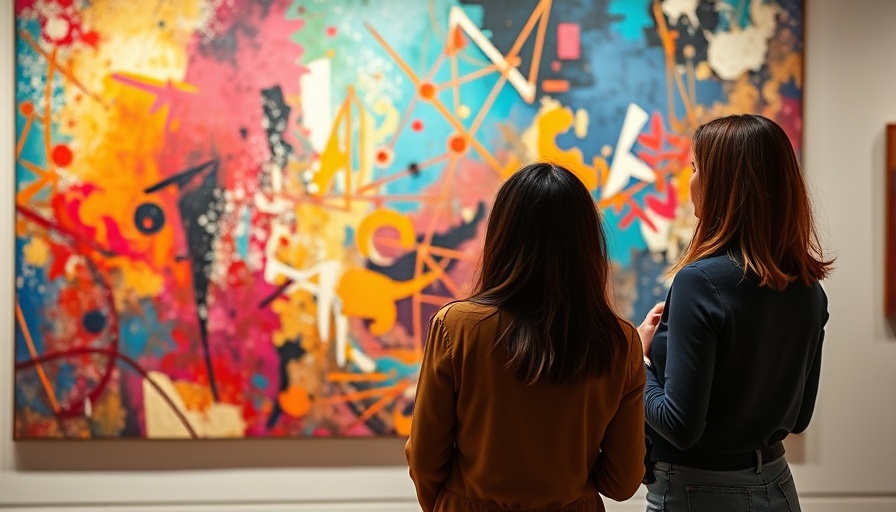
AI News: A Transformation at SXSW Sydney
The SXSW Sydney 2025 conference was an electrifying blend of innovation, ideas, and collaboration, uniting over 100,000 attendees ranging from creators to thought leaders. Amidst a flurry of discussions, eight game-changing insights emerged, showcasing how AI is revolutionizing various sectors, from wellness to business strategies.
Wellbeing: The New Competitive Edge in AI
Surprisingly, the conference kickoff didn't cater to standard tech demos but instead began with a meditation led by Mo Gawdat, the former Chief Business Officer at Google X. His poignant reminder that our most significant upgrade isn't to technology but to our minds struck a chord. “Happiness is not a luxury. It’s a skill you can practice,” Gawdat emphasized, framing AI as a tool to enhance, rather than diminish, human experience. This perspective suggests that the leaders who prioritize mental wellness alongside technical innovation will have the edge in this fast-paced, AI-driven world.
AI Agents: Essential, Not Just Experimental
One notable revelation was the ubiquity of AI agents at SXSW, which were present in 52% of Tech and Innovation sessions. What once felt niche is now becoming a critical infrastructure in automation and business strategy. During a workshop, attendees learned to create functional AI agents, highlighting that businesses must leverage teams of specialized AI agents. Jacky Koh from Relevance AI noted, “The next leap in productivity will not come from bigger models but from orchestrated ecosystems of AI agents.” This underscores a shift towards viewing AI not as a replacement for jobs but as a partner that amplifies human productivity.
Inclusion in Innovation
SXSW Sydney furthermore celebrated inclusivity through the Tech and Innovation Festival, showcasing upcoming thinkers. Over 70 university students presented innovations, highlighting the intersection of education and opportunity. This focus signals a shift where the future of innovation depends on collaboration and inclusivity. Events like this emphasize that fresh ideas often emerge when diverse perspectives come together, ultimately improving society as a whole.
Redefining Leadership: Emotional Over Efficiency
Forward-thinking leaders are realizing that technology must amplify our innate human qualities, such as empathy and intuition. Brian Solis, Head of Global Innovation at ServiceNow, insisted that “digital transformation is less about technology and more about people.” This ethos encourages organizations to focus on emotional intelligence as a critical component of leadership in the age of AI.
Creativity Is Now Collaborative
The nature of creativity was also a significant topic; no longer a solo endeavor, it is evolving into a collective process where humans partner with AI. Music producer Manon Dave aptly stated, “Technology should enhance, not replace, human creativity.” This sentiment reverberated throughout the conference—emphasizing that true innovation comes when technological tools are employed not to overshadow creativity but to amplify it.
The New Norm: Intelligence Through Connection
AI’s integration with quantum computing presents vast opportunities, but Dan Krigstein reminded us that true intelligence arises not from raw computation but from the connections it facilitates. As the complexity of data increases, blending analytical insights with human judgment will become paramount in crafting solutions that resonate with people.
Trust in the Age of AI
AI’s role is not just about efficiency; it's about re-establishing trust in systems through tokenization and digital identity verification. Immutable, an Australian Web3 pioneer, is embodying this shift by creating credible layers in digital transactions. In a world overwhelmed by misinformation, building systems that prioritize trust will ultimately influence how society interacts and evolves.
Practice Makes Perfect: Building the Future
One of the most thought-provoking conclusions drawn was that the future isn’t set; it’s actively shaped through continual learning and adaptation. Frederik Pferdt, an innovation expert, framed it succinctly: “The future belongs to the builders who learn faster than the world changes.” If organizations can embrace this mindset, they will likely thrive amidst disruption.
Concluding the conference, a resonating vision emerged: humanity will not be lost to technology, instead it will be redefined by it. Embracing AI first while keeping human values at the core will be the hallmark of future success.
 Add Row
Add Row  Add
Add 




Write A Comment